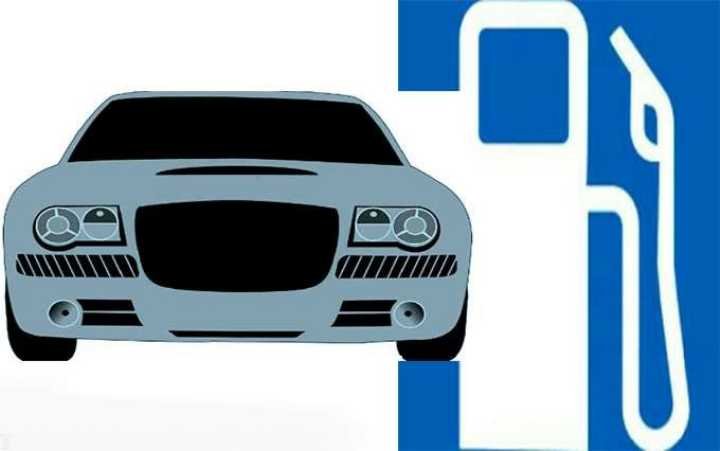23 Ways to Get Better Mileage in Your Petrol Car
Howdy, Driver? Let’s learn to get better mileage in a petrol car. I will disclose the tricks you should employ and the habits to let go of for improved fuel economy in your petrol car.

You can get better mileage by not over-speeding, overloading the car, driving always, properly inflating the tires, etc.
Is it possible to get improved fuel efficiency? If yes, do people attempt to do these things? Is it a ‘no’? Certainly, it’s a ‘yes’. A few, if not more car owners, practice several measures which improve fuel economy.
This article exposes 23 unique ways to increase MPG in your petrol car at no cost. Learn now how to improve fuel economy in a petrol car and be proud of your car.
Interested in the best MPG Toyota cars?
How to Get Better Mileage in Petrol Car
Below are the ways to get better mileage in a petrol car:
Enable Cruise Control
One of the few intelligent innovations by car manufacturers is the integration of the cruise control system. Regarding how to increase mpg in petrol cars, cruise control aids the vehicle to maintain a set speed. You barely have to match the accelerator pedal while driving which saves gas.
If you own a vintage sort of car, the feature may be lacking which requires installation. A modern vehicle should feature cruise control.
Cruise control saves fuel and cuts off unconscious over speeding. Furthermore, it is ethically acceptable to improve the fuel economy of a petrol car. The sad aspect, however, is that cruise control isn’t a champion in hilly ways.
Remap the ECU
Regarding fuel saving on petrol cars, the ECU is pivotal concerning how to get better mileage in a petrol car. Do you at all rate the ECU to be something contributive to the car? You should at least understand that the ECU ensures smooth air/ fuel flow in the car. This eventually results in increased fuel efficiency for covering more miles.
To get the best out of your engine, consider remapping the ECU. It entirely alters the functionality of your wheels’ engine and unleashes a concealed ability of the car including fuel saving. You’d probably be wondering whether you can remap the ECU yourself, the answer is ‘yes’.
Use Manufacturer Fuel Type Recommendation
A really difficult task, right? Assuming the manufacturer of your vehicle recommends a 91 octane rated fuel type, refilling with 95 octane rating kills the party.
The manufacturer understands why a 91 is most preferred to a 95 and once you deviate, vehicle performance is affected. Guess what? The hungry engine begins to sip more fuel than the job it’s doing.
Douse the fact that a premium/super fuel enhances performance and don’t refill with premium fuel if it isn’t recommended. In essence, the ideal fuel for your car is what the manufacturer recommends and not what you think is better.
Don’t Apply Wussy Motor Oil
To get better mileage in a petrol car, avoid gunky motor oil. It makes the engine hotter and frictional, thus, resulting in the bad fuel economy of a petrol car.
Energy friction occurs in engine areas including but not limited to the valvetrain, oil pump, crankshaft, piston, and cylinder. Motor oil with high viscosity creates high friction in these areas and enormous energy would be required in the process. On the contrary, motor oil with low viscosity reduces such friction and increases fuel economy.
Using good motor oil is ethical on how to get better mileage in a petrol car and should be practiced always.
Replace Engine Air Filter
A dirty air filter hampers not just the performance but the MPG of your petrol car. When debris from the air filter breaches the internal parts of the engine, the vehicle entirely craves more energy.
Regarding how to increase mpg in petrol cars, replacing a cruddy or dirty air filter boosts MPG by at least 8%. In some instances, car owners experience up to 10% fuel savings of approximately $15 per gallon. A clean air filter is synonymous with a debris-free motor. In this manner, the functionality of the car becomes swift and increases fuel economy.
While practicing how to increase MPG in petrol cars, make the engine air filter a priority because it’s necessary.
Get Rid of the Fan Belt?
A few years ago, if someone said “the fan belt will gradually go extinct”, you’d argue till you have little strength left. Do you own a vintage sort of car? Then, we’ll conclude that it sports the good old fan belt which encourages high fuel burning.
Electric fans are a prominent feature encouraging better mileage in petrol cars today. It practically draws no energy from the engine which means no load on the engine. The effect in return is a load-free engine that performs on a high and increases fuel economy.
A vehicle with an electric fan is a perfect practice on how to get better mileage in a petrol car. It is high time to ditch mechanical fans and save more petrol.
No Overloading
Earnestly, not all cars are designed for enormous loading. Overloading pressurizes your car and causes the engine to overwork.
Your body requires energy to function, right? When you overwork your body, it hastens the process of oxygen breaking down glucose to create fuel for the muscles. Now, think of your car this way. Too much pressure means ‘overworking’ and results in excess fuel-burn. This occurs because the engine attempts to match up with the undue load and is forced to request more energy.
For better fuel economy, do not unduly load packages in the car. It is an intelligible practice to get improved mileage in your petrol car.
Plan and Follow Short Route
In a report from GPS World, you could save an estimated 6% of gas by simply planning and following short routes. Although you’ll make a couple of bends and slowdowns, it saves more fuel than long routes. This is partly because you would be tempted to match the accelerator harder to save time.
If short routes have been destabilized by several traffic signals including the traffic light, it shouldn’t be an option. Even hilly short routes should not be considered over long and plain routes.
However, simple route planning can endeavor for an effective increase in MPG. Take advantage of technologies by making use of digital GPS to track your destination. Opt for routes with low traffic, less hilly ways, and decent timing.
Faulty Gas Cap?
Do you ever wonder why the gas cap clicks when you close it? That’s to inform you that the closure is either perfect enough or near-perfect. When the gas cap is faulty, it may result in fuel evaporating through the leakage point.
Is a damaged gas cap good for fuel economy? Obviously, no! The fuel efficiency of your petrol car would be greatly hurt and that means more expenses on fuel. A leaky gas cap isn’t what an ideal vehicle should sport. Apart from the aggressive fuel combustion, you’ll witness fuel economy deterioration at about 10%.
You can get better mileage in your petrol car to cover more miles with little gas if you replace a damaged gas cap.
Don’t Leave the Car Idle
Constant vehicle idling isn’t an excellent practice. An idle car burns about 1/5 to 1/7 gallons of fuel for every hour.
A sedan car sporting a 4.6L engine sucks between 0.5 – 0.7 gallons hourly. The number increases in a situation where the air conditioning is enabled. You should expect about 2 gallons of gas being used hourly for the process. It hurts the fuel economy of your vehicle and you get to spend more on petrol.
Would you not love to save some bucks? Then, abstain from persistent idling to get better mileage in your petrol car.
Embrace DFCO and Don’t Pressurize Accelerator Pedal
Who wouldn’t love to match the accelerator pedal on a freeway? It’s a tempting act but it comes at the expense of gas. Unless it is an emergency, you really should not match that accelerator pedal next time.
Some modern cars sport the deceleration fuel cut off (DFCO) which prevents the petrol car from burning fuel after a slow release of the accelerator pedal. DFCO is a commendable feature in modern cars and it increases fuel economy by up to 2%. However, this is dependent on the particular driving conditions. If your modern car sports DFCO, you may have to worry less about how to get better mileage in a petrol car.
Properly Inflate the Car Tires

Mr. A owns the same car as Mr. B but Mr. B manages to get a better fuel economy. What magic could Mr. B be using? The answer is that there is no voodoo behind getting better vehicle gas mileage as a few would think. Simple proper tire inflation could go a long way to increase the fuel efficiency of your car.
Under-inflated car tires encourage poor gas mileage. The car would likely burn up to 0.3% more fuel per psi drop which increases vehicle drag.
Maintaining properly inflated tires increases fuel economy by an average of 0.6%. In some instances, the figure could rise to 3% which means saving more gas for longer miles. Get the best from your petrol car by properly practicing how to increase mpg in petrol cars from properly inflated tires.
Don’t Overuse Gadgets in Cars
The electrical components of your car contribute to the workload on the alternator. It means that the engine is being called to action and that increases fuel consumption.
The air conditioning, for example, reduces fuel economy by up to 3 MPG. However, this figure is dependent on the type of car as well as their age. The car radio isn’t an exception in this consumption but it reduces fuel efficiency by a slim MPG.
If you have installed gadgets that you barely use, consider disabling them while driving. When the weather condition is comfortable, disable the air conditioning to increase fuel economy. As earlier stated, there is no voodoo involved in increasing MPG other than a few practices such as disabling unused gadgets.
Enable Overdrive (Automatic Cars)
The overdrive is ‘OD’, it is the highest transmission gear in automatic cars. While you drive at a higher speed, this feature keeps the engine RPM (Revolution Per Minute) down at a set speed to encourage fuel economy.
Although OD is a great fuel-saving measure, it isn’t recommended while overtaking, going uphill, or towing another vehicle.
Why so? This will keep the transmission in your car from repeatedly downshifting and upshifting. In essence, endeavor to employ the aid of overdrive at necessary occasions to increase gas mileage.
Avoid Rough Roads
If it’s possible, avoid driving through rough roads. Aside from the excess energy that would be demanded by your petrol vehicle, driving on rough roads can be pretty tiring. Streets occasioned by potholes slow down the ride and cause annoying stopovers that burn more than the expected fuel.
Besides, pavements with rough textures have been noted to discourage fuel economy.
California Department of Transportation used a surface penetrating radar and GPS to study a 50,000 lane mile in the state. The result recorded that Pavement Vehicle Interaction (PVI) contributes 1% to the fuel consumed by a car. This may not mean much to you though as a driver. However, over 5 years, this result identifies that PVI exhausts a billion more fuel than other fumes produced by a car.
Check for Vacuum Leaks
The manifold which houses the intake manifold gasket may be suffering a leakage. This translates to an abrupt fuel loss that discourages a good fuel economy. Extensively, another vacuum hose of the manifold may be leaking air/gas which results in poor fuel economy.
Moreover, it doesn’t matter how slim the leaking spot is because a minor leak is a gateway to problems in the car. Do not drive with a leaking vacuum because the engine will be made to suffer from insufficient power.
Watch Your Speed
You’re trying to catch up with something. Nonetheless, over speeding does not conform with the ethics regarding how to get better mileage in a petrol car. A good fuel economy is best practiced when you maintain a certain speed level that apportions the engine fewer tasks.
For instance, if you go from 55mph to 75mph on the freeway, you’ve decreased fuel economy by about 20%. So, if you keep your speed at 55mph, you’d be certain that you’re increasing MPG by an average of 12%. This isn’t rocket science towards making your car fuel-efficient, it’s just a simple measure involving speed-check for better fuel economy.
Include Synthetic Oils in the List
Does synthetic oil improve fuel economy? The answer is yes. With synthetic motor oil, your vehicle engine practically demands less energy. These are less-viscous motor oils with less resistance on oil flow and that encourages swift engine operation.
In this manner, friction becomes lesser in the engine parts and lesser gas is lost. Interestingly, this leaves no negative impact on the performance of your vehicle. Consider synthetic motor oils to improve the fuel efficiency of your vehicle.
Eyes on the Radiator
No matter the circumstance, never ignore an overheating vehicle. You’d probably be thinking that it’ll only cause smoke and all of that but it decreases MPG too. The radiator may not be the culprit behind the car overheating but in most cases, it’s usually radiator-related.
A troubled engine will attempt to gather more resources than necessary in a bid to address the problem. This, of course, would result in a decreased fuel economy which isn’t an ideal fuel-saving measure.
Cut Off the Maniac Driving Habit

Whether it’s a new or an old car, you could still save gas by driving responsibly. You aren’t a drag racer and shouldn’t try to imitate the pros, especially on a 40mph way. It’s recommended, instead, to go berserk at an abandoned spacious area, if you ever find yourself and a car there.
The ethic regarding how to increase fuel efficiency in the petrol car greatly demands a non-maniac driving habit. If you’re guilty, try to abstain from it and watch your fuel economy increase by a massive 25%. Would you not be happy enjoying a plausible fuel-efficient ride like others around the world? Many have tried driving moderately and the result has been amazing.
Don’t Drive Always
As funny as this may seem, you could save anything between 35 to 40 percent on gas. If you have a short distance to cover, why not trek or make use of a bicycle? It’s apprehensible that public transport may be inconveniencing but you have to manage the situation to increase fuel economy.
Have you no bicycle? Do you feel too old for a bicycle? You’re seriously missing out on something; such that would greatly improve the fuel efficiency of your vehicle.
Adopt the Stop-Start
Leaving your car idling isn’t a decent practice towards saving fuel and increasing fuel economy. When occasions bring you to a halt, the stop-start should be utilized.
This practice, according to Automotive Engineers, saves up to 8% gas which is incredible. In traffic scenarios where you have to stop and go, the stop-start reportedly increase MPG by up to 3%.
Rev Minimally
Revving up the engine is a pretty cool measure to warm the engine. However, it burns far more gas than you’d imagine. So, don’t rev all the time. Besides, in modern cars, it takes just about 30 seconds for a cold engine to be fully ready for driving.
Final Thoughts
Getting improved fuel efficiency has never been rocket science. It’s a matter of practicing a few measures as stated above and viola, the fuel economy increases.
In this guide, all the unique practices regarding how to get better mileage on petrol cars have been outlined.
Promise me you’re going to ditch some of those bad practices.
Assure us you’ll never overwork that lovely car of yours.
Treat that car how you’d love to treat yourself.
Tracy Cozzens. Faster? Shorter? Try Cheaper, Greener: Program Gives Drivers the Most Fuel-Efficient Route. GPSWorld.
- 10 Common Mistakes When Bleeding Brakes - September 12, 2023
- Dash Cam That Records When Car is Off [5 Best] - September 11, 2023
- How to Know if Dash Cam is Recording [10 Methods] - September 8, 2023




